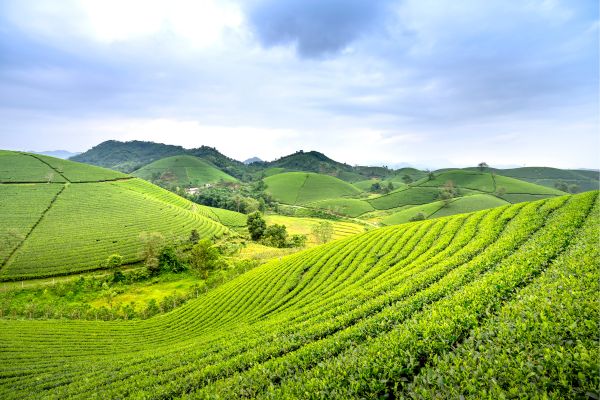According to Article 15 of the Land Law 2024, what are responsibilities of the State representing landowners in relation to land to land users in Vietnam?
According to Article 15 of the Land Law 2024, what are responsibilities of the State representing landowners in relation to land to land users in Vietnam?
Article 15 of the Land Law 2024 stipulates the State's responsibilities to land users representing landowners in relation to land in Vietnam as follows:
(1) Formulate policies to create conditions for those directly engaged in agricultural production who lack production land due to the process of changing land-use structures and economic structures to receive vocational training, job conversion, and job search assistance.
(2) Issue Certificates of land use rights, ownership of assets attached to the land to land users when they meet the conditions prescribed by land law.
(3) Provide compensation, support, and resettlement in accordance with the law for those whose land is recovered by the State for purposes of national defense, security; socio-economic development for national and public benefits.
(4) Propagate, disseminate, guide, and provide legal assistance according to the law for land users in implementing policies, law, administrative procedures on land, and exploiting information in the national land database.
(5) Resolve land disputes; address complaints and accusations about land.
These regulations provide information for the question "According to Article 15 of the Land Law 2024, what are responsibilities of the State representing landowners in relation to land to land users in Vietnam?"

According to Article 15 of the Land Law 2024, what are responsibilities of the State representing landowners in relation to land to land users in Vietnam? (Internet image)
Who are considered land users under the law in Vietnam?
Article 4 of the Land Law 2024 states that land users are those to whom the State allocates land, leases land, acknowledges land use rights; those who are using land stably and are eligible for land use right certificates, ownership of assets attached to the land but have not yet received such certificates from the State, including land use right certificates, ownership of houses and residential land use rights, land use right certificates, ownership of houses and other assets attached to the land, land use right certificates, ownership of assets attached to the land; those who acquire land use rights; sublease land, including:
- Domestic organizations including:
+ State agencies, agencies of the Communist Party of Vietnam, people’s armed units, the Vietnam Fatherland Front, political-social organizations, political-social-professional organizations, social organizations, social-professional organizations, public service providers, and other organizations as prescribed by law.
+ Economic organizations as defined by the Investment Law, except for economic organizations with foreign investment.
- Religious organizations, affiliated religious organizations.
- Domestic individuals, Vietnamese residing abroad as Vietnamese citizens.
- Residential communities.
- Foreign organizations with diplomatic functions including diplomatic missions, consular offices, other foreign organizations with diplomatic functions recognized by the Government of Vietnam; representative offices of organizations under the United Nations, intergovernmental organizations, representative offices of intergovernmental organizations.
- People of Vietnamese origin residing abroad.
- Economic organizations with foreign investment.
What are the contents of state management of land in Vietnam under the Land Law 2024?
According to Article 20 of the Land Law 2024, contents of state management of land in Vietnam include:
(1) Promulgating and organizing the implementation of legal documents on the management and use of land.
(2) Propagating, disseminating, educating, training, conducting scientific research, developing technology, and cooperating internationally in land management and use.
(3) Determining administrative boundaries, establishing, and managing administrative boundary records.
(4) Surveying, correcting, mapping land, current land use maps, land use planning maps, and specialized maps for land management and use.
(5) Investigating, evaluating, protecting, improving, and rehabilitating land.
(6) Formulating, adjusting, and managing land use planning and plans.
(7) Allocating land, leasing land, recovering land, recognizing land use rights, requisitioning land, changing land use purposes.
(8) Investigating, constructing land price frameworks, specific land prices, managing land prices.
(9) Managing finances related to land.
(10) Compensating, supporting, and resettling when land is recovered or requisitioned.
(11) Developing, managing, and exploiting the land fund.
(12) Registering land, establishing and managing land records; issuing, correcting, revoking, and canceling certificates.
(13) Statistically and auditing land.
(14) Building, managing, and exploiting the National Land Information System.
(15) Managing and supervising the implementation of land use rights and obligations of land users.
(16) Resolving land disputes; dealing with complaints and accusations about land.
(17) Providing and managing public services related to land.
(18) Inspecting, examining, supervising, monitoring, evaluating the compliance with land law regulations, and handling legal violations related to land.
LawNet

